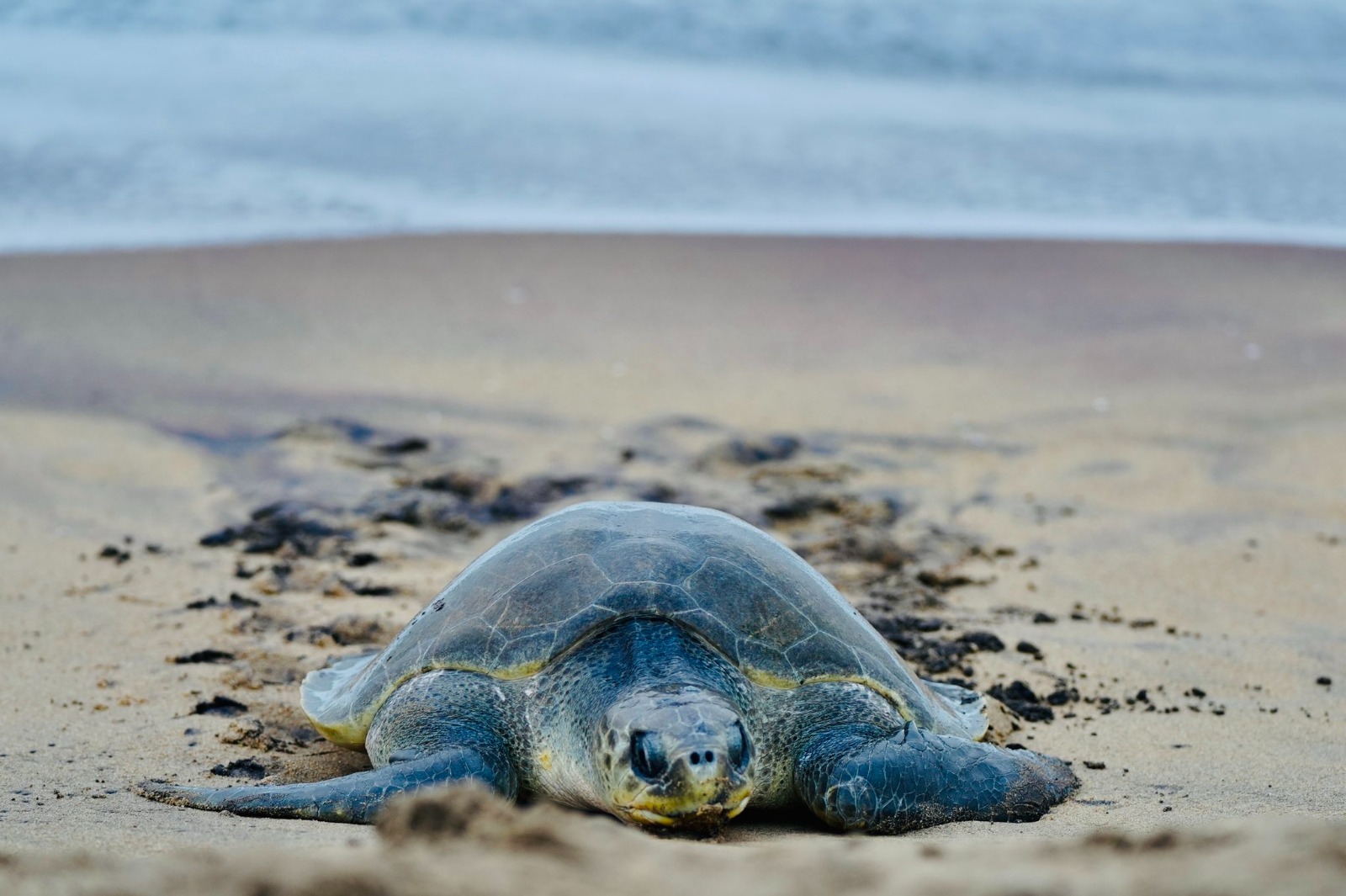In an effort to protect the Olive Ridley turtles during their crucial breeding and nesting season, the government of Odisha has imposed a seven-month fishing ban near three significant river mouths. The ban, which went into effect on the current day, encompasses areas within 20 km of the coast at the river mouths of Dhamara, Devi, and Rusikulya and will remain in place until May 31, 2024. Each year, millions of Olive Ridley turtles visit these sites between November and January for mating and laying eggs. To safeguard these vulnerable species, the fishing prohibition restricts mechanized and motorized boat fishing within a 10 km radius from both sides of the Rusikuya river mouth and within 20 km from the coast. Additionally, the government provides financial support of Rs 15,000 per family as a one-time assistance to compensate for the fishing ban.
This ban serves to mitigate the high mortality rates that result from turtles becoming entangled in fishing nets or being struck by fishing trawler propellers. To enforce the prohibition, a multi-agency patrolling effort is employed, involving forest, fisheries, and marine police, as well as coast guard personnel. The Deputy Director (Marine), acting as the Adjudicating Officer of the Directorate of Fisheries, serves as the nodal officer overseeing the patrolling activities during the fishing ban. The Fisheries department has also planned awareness camps in collaboration with stakeholders, including Forest and Marine Police Officials, and potentially the Coast Guard, to educate fishermen about the ban.
It’s important to note that a year-round blanket ban on sea fishing remains in place in the Gahirmatha coast, which is the largest known habitat for these endangered marine turtles and has been designated a marine sanctuary due to the congregation of turtles. During the nesting season, female turtles venture onto the beaches under the cover of night to lay their eggs, a phenomenon known as ‘arribada.’ After laying their eggs, the turtles return to the sea, and hatchlings emerge from the eggs after a period of 45-60 days. This concerted effort by the Odisha government aims to protect and conserve these remarkable marine creatures.
In an effort to protect the Olive Ridley turtles during their crucial breeding and nesting season, the government of Odisha has imposed a seven-month fishing ban near three significant river mouths. The ban, which went into effect on the current day, encompasses areas within 20 km of the coast at the river mouths of Dhamara, Devi, and Rusikulya and will remain in place until May 31, 2024. Each year, millions of Olive Ridley turtles visit these sites between November and January for mating and laying eggs. To safeguard these vulnerable species, the fishing prohibition restricts mechanized and motorized boat fishing within a 10 km radius from both sides of the Rusikuya river mouth and within 20 km from the coast. Additionally, the government provides financial support of Rs 15,000 per family as a one-time assistance to compensate for the fishing ban.
This ban serves to mitigate the high mortality rates that result from turtles becoming entangled in fishing nets or being struck by fishing trawler propellers. To enforce the prohibition, a multi-agency patrolling effort is employed, involving forest, fisheries, and marine police, as well as coast guard personnel. The Deputy Director (Marine), acting as the Adjudicating Officer of the Directorate of Fisheries, serves as the nodal officer overseeing the patrolling activities during the fishing ban. The Fisheries department has also planned awareness camps in collaboration with stakeholders, including Forest and Marine Police Officials, and potentially the Coast Guard, to educate fishermen about the ban.
It’s important to note that a year-round blanket ban on sea fishing remains in place in the Gahirmatha coast, which is the largest known habitat for these endangered marine turtles and has been designated a marine sanctuary due to the congregation of turtles. During the nesting season, female turtles venture onto the beaches under the cover of night to lay their eggs, a phenomenon known as ‘arribada.’ After laying their eggs, the turtles return to the sea, and hatchlings emerge from the eggs after a period of 45-60 days. This concerted effort by the Odisha government aims to protect and conserve these remarkable marine creatures.





